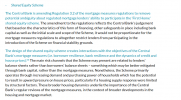No changes to the mortgage rules -

 www.rte.ie
www.rte.ie

No changes to Central Bank's mortgage rules
The Central Bank has left its mortgage rules unchanged after its annual review was published today.
Last edited by a moderator:



